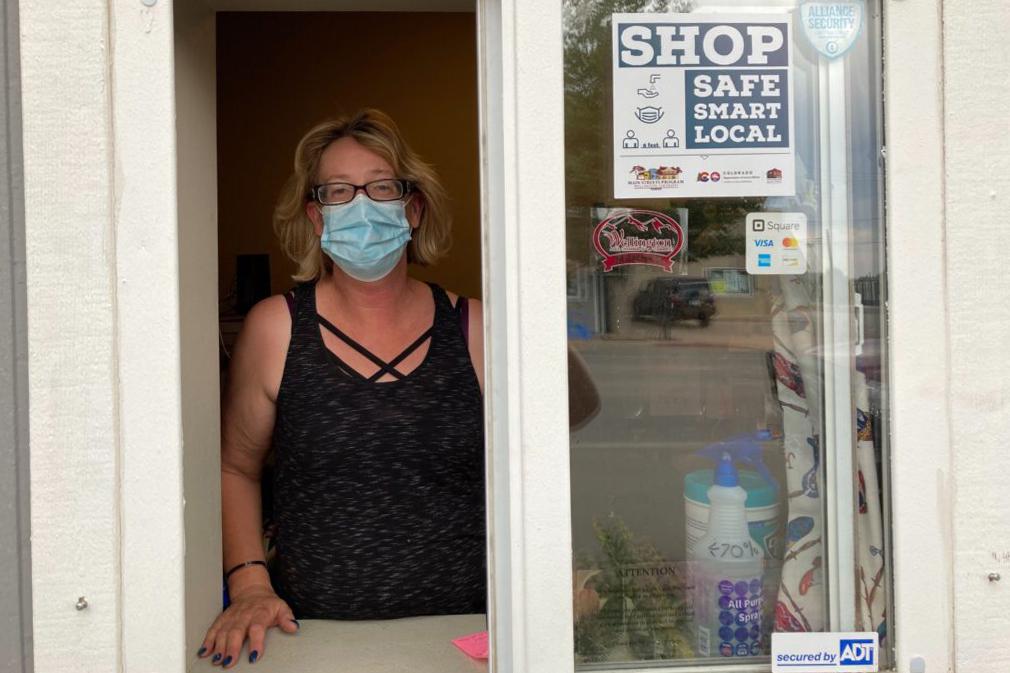
The Larimer County town of Wellington is a welcoming community, the kind of place where neighbors wave or honk when they see one another. American flags hang outside the small ranch houses, and kids’ bicycles and toys — not political signs — litter front yards.
Wellington Mayor Troy Hamman is very proud of his town. Last year, the gregarious mayor was focused on how fast this bedroom community was growing, swelling to 12,000 residents as people moved in from nearby Fort Collins.
This year, the story’s a bit different.
“I’ll tell you what, COVID did a lot to our town. It really spun it out, set it back,” he said on a recent walk down Cleveland Avenue, the town’s main street.
The novel coronavirus pandemic has left scars here.
“It's been hard on families and children, not having a school to go to and not being able to do the events and plan like they used to,” he said. “So it was definitely a lifestyle change and it's created a bit of a dystopian society and in a small town, everybody knows each other.”
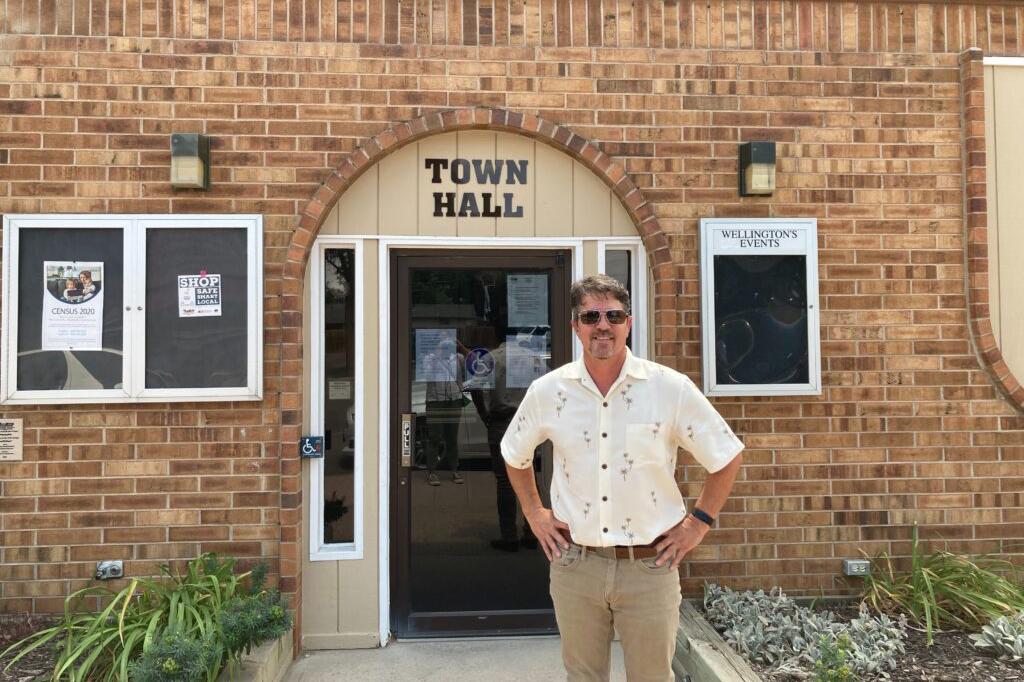
Things are looking a bit more normal now. Most of the small businesses that shuttered at the start of the pandemic have reopened, albeit many with reduced capacity or shortened hours.
At one end of the avenue, Linda Knaack sits behind a little sliding glass window as she assists a customer standing on the sidewalk outside her family-run auto repair shop. She says the federal CARES Act helped save the business. The Paycheck Protection Program, known as PPP, allowed her to keep her four employees on the payroll, and she has been trying to use the money to help her wider community too.
“I'm really about my town, my small town and us being in this together,” Knaack said.
Since her business, Knaack of It Automotive, was deemed essential, the Wellington native was able to stay open through the worst of the pandemic. And she did what she could for her neighbors up and down the main street. She bought gift cards from the shops and restaurants, and even got flyers made at the local print shop, “because if they're not here and around then I am definitely not going to be here around.”
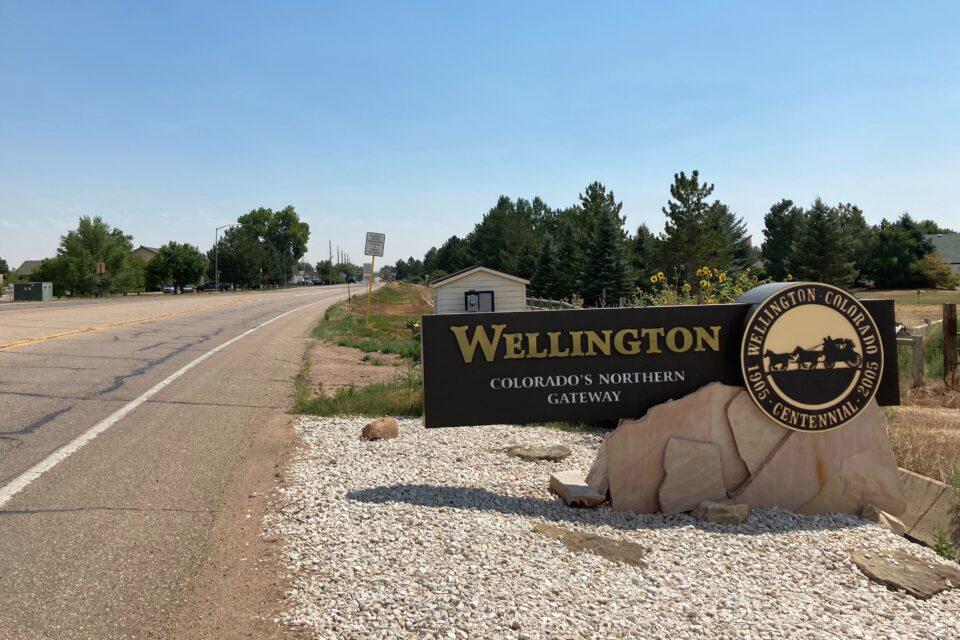
And the future is still very much in question. Most of these small business owners say a sense of uncertainty that hangs overhead, like an angry storm cloud on the horizon.
“I think everyone is trying to navigate this new environment,” said Kelly DeVries, owner of Thistle gift shop. “A lot of people are losing jobs or worried that they’re going to. So they’re holding back more, which totally is understandable.”
She's been amazed at the community spirit to help the businesses in town. As the store’s only employee, she didn’t qualify for PPP, but a small SBA grant helped her get through. She has had to cut back shop ours though, in order to help her two kids navigate virtual school.
Despite the sign hanging up just behind her that says "Please no politics," the registered Democrat says she wants politicians in Washington to know about the problems facing really small businesses like hers. She reached out to some of Colorado’s members of Congress and got form letters in return.
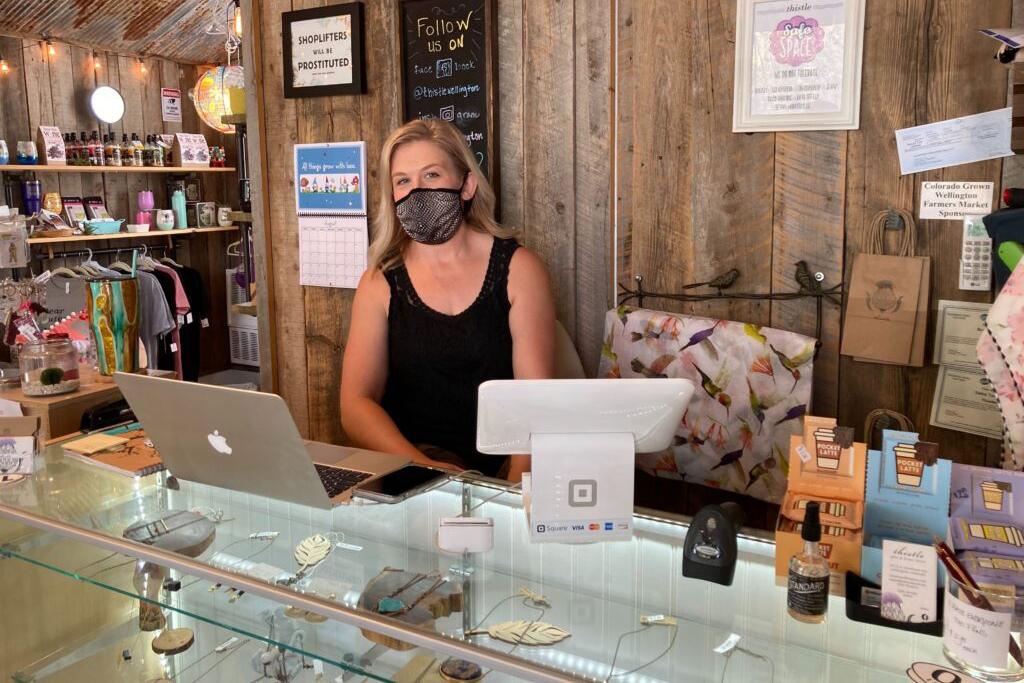
“I was just hoping that maybe it gets to them, though, you know, and in some way they see that we're all struggling so much,” she said.
Negotiations between the White House and Congressional Democrats on another coronavirus aid package have broken down over issues like unemployment help, state and local aid, and the final price tag. The looming election makes it increasingly unlikely the two sides will reach a deal any time soon.
DeVries has almost given up hope that Congress will do much to help people like her, and she’s not alone in that disappointment.
Peter Pronko and his wife Diana have yet to fully reopen their jewelry store, although they’ve kept the watch repair side of it going. The couple are both in their 80s, and Proper Time is their retirement business.
- Pandemic Loan Borrowers Still Carry Their Debt Worries Even As Forgiveness Applications Open
- Did PPP Loans Really Save 900,000 Colorado Jobs During The Coronavirus Shutdown?
- Colorado Companies Big And Small, But No Surprises, Got A Gov’t PPP Loan
- Rural Small Businesses Join With The Banks Next Door To Tap Into Federal Coronavirus Stimulus
- Much-Needed Coronavirus Relief Or Presidential Overreach? Colorado Congressmembers Split On Trump Executive Orders
He’s an unaffiliated voter, she’s a Democrat. They were both impressed with how Congress handled the pandemic — at first. But that feeling has given way to disillusionment.
“It's a log jam. It's not going anywhere, which is unfortunate because there's a real need for continuing support of some kind,” Pronko said.
He points out that when CARES was passed, the idea was to help people through the first couple of months of the pandemic, giving the federal government time to develop some sort of longer-term plan. That hasn’t materialized.
Instead, he’s had to make do with his own plan. He’s kept the business going as well as he can. Pronko instituted a drop-off and pick-up process that doesn’t require him to be face-to-face with customers, painstakingly sanitizes items before even starting repairs, and has shifted to online sales.
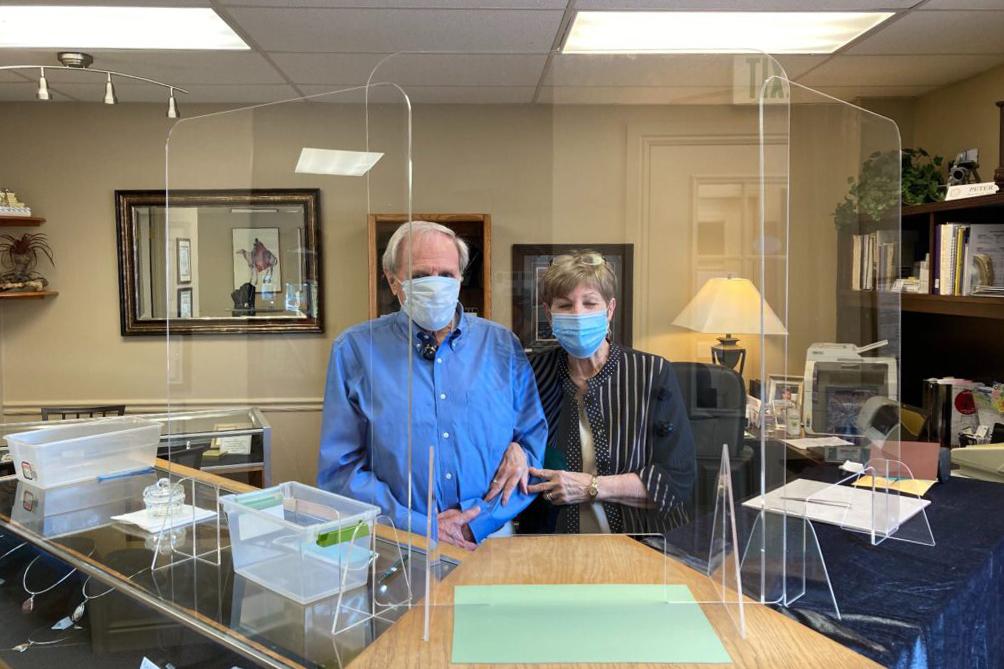
Other businesses too, have been left to struggle along.
“We used to fill the place wall to wall. And now we just can't,” said Mary Gray, owner and general manager of Soul Squared Brewing and Leave it to Cleaver, a food truck located behind the taproom.
State guidelines restrict how many people can be inside. They’ve expanded outside seating with the help of the town, but Gray is worried about what will happen come fall and winter. She estimates business is down 75 percent. Still, even as Gray is apprehensive about the future of her two businesses, she’s more concerned about the cost of all the federal help.
“I mean, $1 trillion, $3 trillion, where's it coming from?” she said. “Are we just printing fake money at this point? So that part makes me nervous about getting excited about assistance.”
Gray, who’s unaffiliated but votes Republican, said she isn’t political, and she doesn’t envy the position politicians are in right now — on either side of the aisle.
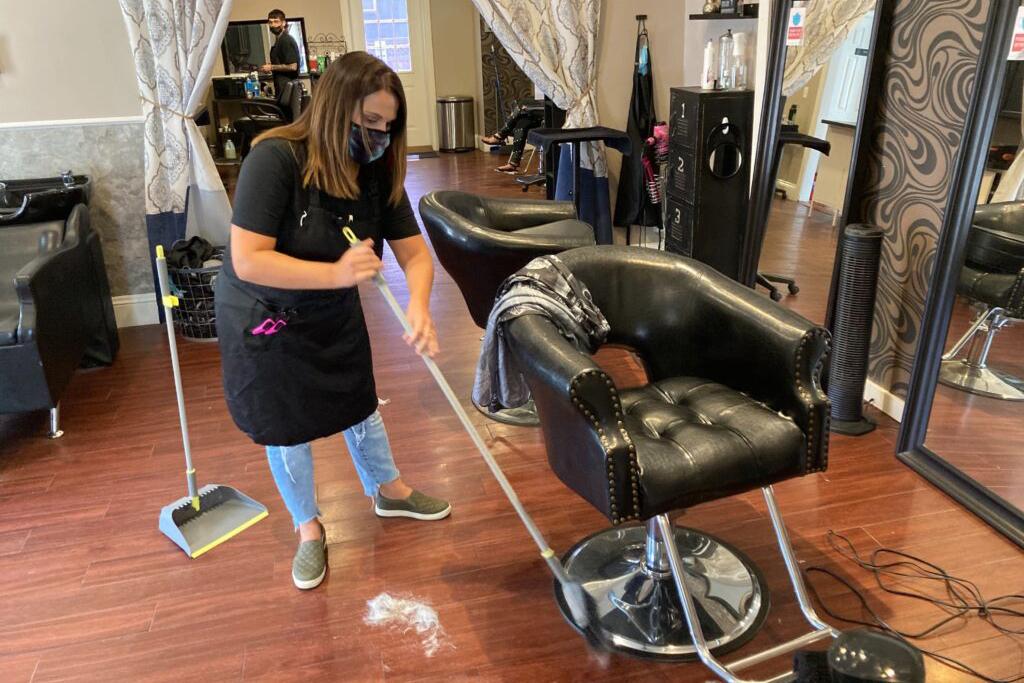
But for many business owners here, including Trim salon owner and Republican Erin Jerome, the frustration with Washington is growing.
“You know, it's sad to me, too, that things have gotten so Democrat or Republican. What about just that ‘We're all people’?” she said. “We all pay the same bills. It doesn't matter what your political background is.”
Across the street, Tom Casabona owns Papa’s Table with his wife Rose. The registered Republican calls the restaurant a “real mom and pop shop.” While the last few months have been exhausting, he still tries to give politicians the benefit of the doubt.
“They're giving you money. They helped employees as best they can,” Casabona said. “I don’t know. We haven’t seen anything like this. How can you criticize what’s been done?”
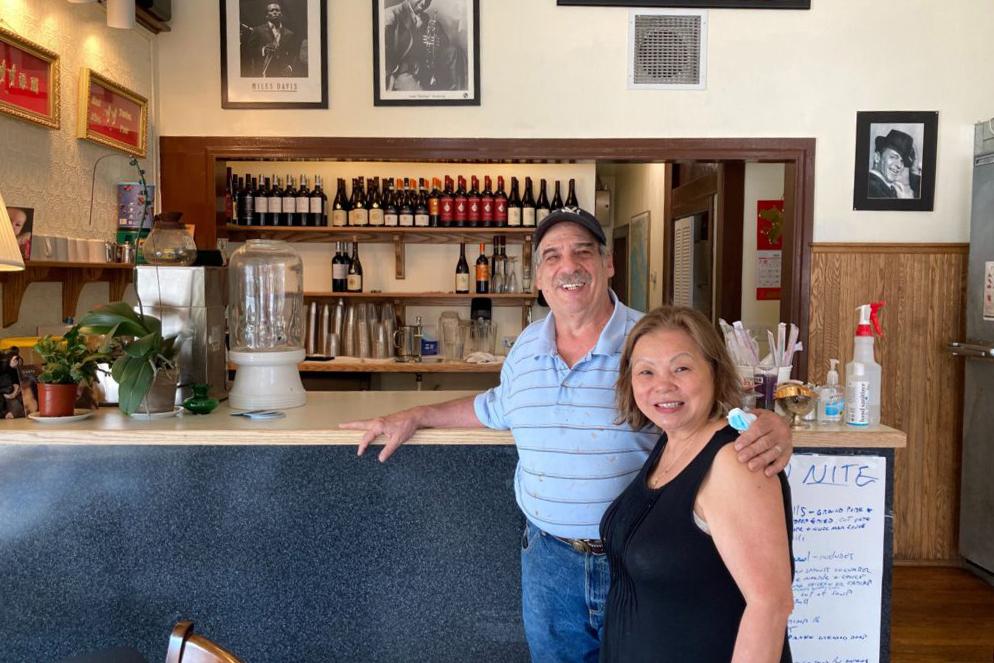
Knaack, a Republican, believes if the political stalemate and finger-pointing continue into September, “everyone will get blamed.”
“There's not a lot of feeling of in the middle, you know? I think people are pretty set, and I think there's a lot of tunnel vision and earmuffs on,” she said.
Up and down the main street, frustration with Washington crosses party lines. After all, what’s decided there could have big ramifications for small towns like Wellington.
And that’s why Pronko has a clear and simple message for Congress:
“Get your act together. Stop being stupid. I got to admit that I've reached the point of being angry with the way things are being handled all the way around.”








